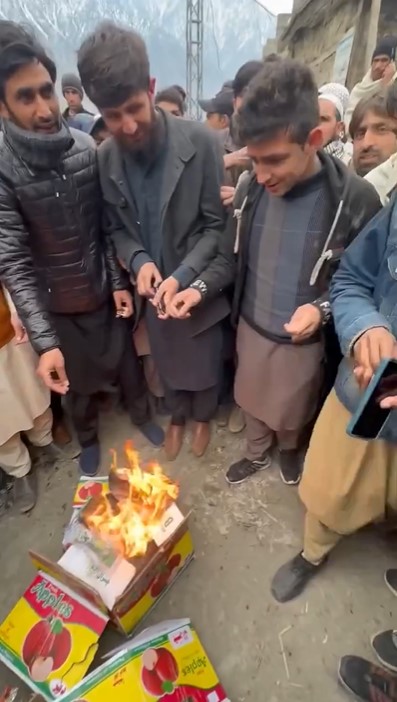In a symbolic act of protest, approximately 150 youths in Darel initiated a SCO SIM burning campaign on February 18th, with 180 SCOM SIMs set ablaze amid chants of “SCOM Murdabad.” The campaign was sparked by growing frustration over the weak signal strength of the Pakistani establishment-owned telecom service. The demonstrators voiced their dissatisfaction with the service, accusing the Special Communication Organization (SCO) of financial exploitation.
The crux of the issue lies in the failure of the SCO to provide reliable internet services despite hefty charges for internet packages. Reports suggest that the internet, which people paid for, remained non-functional, leading to mounting grievances. This incident, while seemingly small, resonates deeply with the local population, reflecting a broader sentiment of dissatisfaction with the Pakistani establishment.
The dissatisfaction goes beyond connectivity issues. Darel, like many other areas in Pakistan-occupied Gilgit Baltistan (POGB), faces challenges related to basic amenities such as wheat, electricity, water, and education.
More disturbing is the fact that despite the scarcity of most basic amenities, the prices have been indiscriminately high because of the exploitative policies of Pakistan and its puppet regime in Pakistan occupied Gilgit Baltistan (POGB).
SCO: A tool to keep people in dark
Furthermore, the combination of exorbitant prices and weak signals is a tactic to control information flow, preventing the populace from gaining a clear understanding of the challenges they face. This control over communication is seen as an attempt to keep the people of POGB in the dark about their own plight and the larger geopolitical context.
It is noteworthy that for the past 77 years, the people of POGB lived under the illusion of freedom, largely shaped by Pakistan’s narrative through controlled media. However, the advent of the internet and social media has unravelled the reality faster than anticipated by Pakistani establishment. Pakistan, cognizant of the internet’s role in awakening the masses, is strategically using its control over the only telecom service provider to stifle dissent and maintain control over the narrative.
As the SCOM SIM burning campaign unfolds, it sheds light on the intersection of connectivity issues, economic exploitation, and information control in POGB. The incident underscores the need for addressing not only the technical challenges but also the broader socio-economic and political concerns facing the region.

